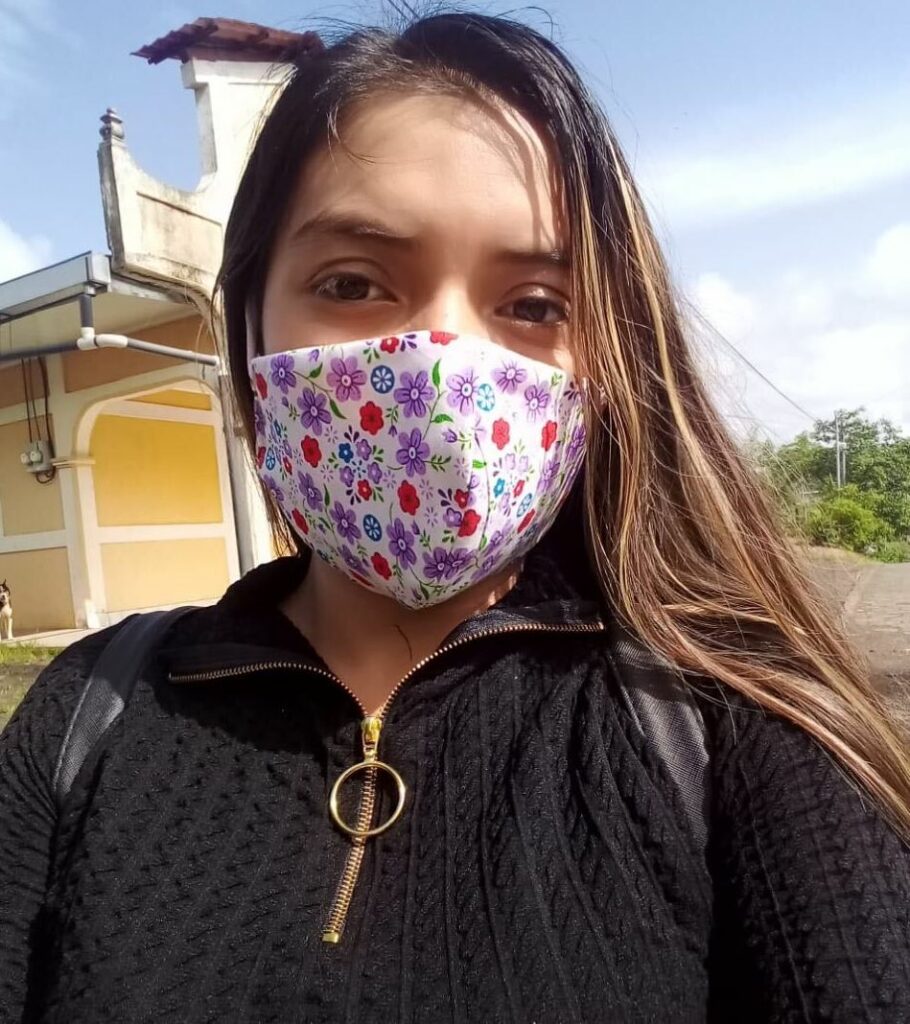
Since March, those of us who could work from home have been doing so for almost 4 months. In other places like Nicaragua, Covid-19 hasn’t reached its peak, and it’s nowhere in sight.
In Nicaragua, work continues due to the lack of safety net for most. People still need to go to work, take public transportation, and live their lives as if there isn’t a global pandemic at large. From the beginning, there were no clear guidelines provided or stay at home orders mandated, nor did schools shut down. Parents had to make tough choices to care for themselves and their families by determining whether to go to school or miss classes by sheltering in place. Fortunately, news about the danger of this virus was widespread and most parents are keeping their children home even without that government guidance being in place. They have been wearing masks, created innovative ways to wash hands, and have been able to take classes online. For one of our students, Mileydi, for whom not going back to school meant falling behind a year, and that was out of the question.
Project Schoolhouse has seen Mileydi grow up, providing a scholarship to help her complete high school and enter her first year of college. Mileydi graduated high school with top honors and is now pursuing a degree in Business Administration at a university in Rio Blanco, which is a 2-3 hour commute by foot from her hometown of Martillo. If this routine was not demanding enough, Mileydi now has to adjust to the unfamiliar situation of taking classes online.
I called Mileydi one morning to hear how her online schooling experience has been going and this is what she told me:
Renata: How did you start taking classes online?
Mileydi: The students took the initiative to push the school to move classes online; we organized and provided a list of students who could take courses online. Some can, though not a lot.
Renata: How have professors changed their method of teaching?
Mileydi: We have this app that we use for classes. We also use WhatsApp. They send attachments of tests and handouts through these apps.
Renata: Do you have wifi? A laptop?
Mileydi: No
Renata: What do you use for school?
Mileydi: I sometimes borrow a laptop if I can, if not I can go to a cyber café or I use my phone.
Renata: How do you use your phone?
Mileydi: I look at the tests, and I can read class notes, or videos they send.
Renata: What year are you in?
Miledy: First year of Business Administration.
Unfortunately, our conversation was a short one as I learned the call was costing Mileydi phone minutes. In Nicaragua, the majority of people do not have a monthly phone plan, they have prepaid SIM cards with limited data usage.
What I found impressive from our conversation was Mileydi standing firm in the decision she took, after much discussion with her parents, to continue going to school and finding a way to do it safely. Mileydi persisted that she would not miss any classes or exams; her recent exams have come back with high marks. It was truly so admirable to hear her explain how she was taking classes on her phone. Despite a lack of resources, such as a computer or at-home wifi, Mileydi has been able to persevere with only a smartphone at her disposal. Not even a global pandemic can stop a girl from getting an education.